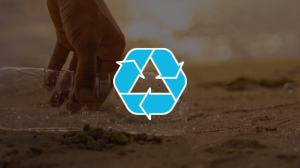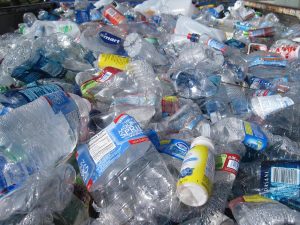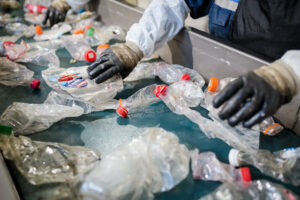Tesco moves to cut out plastic from range of own-brand products
Supermarket says it will remove 1bn pieces of plastic by the end of next year
is ditching plastic ready-meal trays, yoghurt pot lids, straws and loose fruit bags in the latest stage of its drive to cut out non-recyclable packaging.
The UK’s biggest supermarket chain is aiming to remove 1bn pieces of plastic by the end of next year from its own-label products.
The move comes after Tesco admitted that 13% of packaging on its own-brand products was hard to recycle, such as the black plastic used for microwave meal trays, which it said it would remove by the end of this year.
The grocer has also pledged to ban brands with too much non-recyclable packaging from next year.
Guardian Today: the headlines, the analysis, the debate – sent direct to you
Read more
Tesco says it will remove all plastic secondary lids on products such as cream, yoghurt and cereal. It is also ditching plastic sporks from snack pots and 200m pieces of plastic used to pack clothing and greeting cards.
Plastic straws on drinks cartons will be replaced by paper alternatives and it is planning to replace plastic trays on own-label ready meals with recycled board. The retailer is also switching small plastic bags – provided for shoppers to pack loose fruit, vegetables and bakery items – to paper bags.
Dave Lewis, the chief executive of Tesco, said: “By focusing on solutions that we can apply across all our UK stores and supply chain, we can make a significant difference and achieve real scale in our efforts to tackle plastic.”
Lewis last year called on the government to develop a national recycling infrastructure to replace the current system, which is led by local councils.
Supermarkets have been taking action amid a growing public backlash against plastic packaging in the wake of the BBC’s Blue Planet II documentary, which highlighted the problem of marine litter.
Major grocers, which a Guardian investigation last year found create more than 800,000 tonnes of plastic packaging waste every year, have faced particular criticism for their role.
Potential changes in government tactics on waste are also driving action. New rules under consultation could force retailers and brands to pay as much as £1bn a year more towards the UK’s recycling infrastructure – up from about £70m now.
The government is also currently considering a mandatory deposit return scheme for plastic bottles after the success of a single-use plastic bag levy in cutting waste.
Tesco is not the only supermarket to take steps to reduce packaging. Morrisons and Waitrose have both tested refill stations to allow customers to buy packaging-free goods, including pasta and wine. Iceland last year pledged to eliminate all plastics in its own-brand products within five years.
Sainsbury’s has said could sell milk and fizzy drinks in returnable glass bottles as part of a drive to halve the amount of plastic packaging it uses over the next six years.



